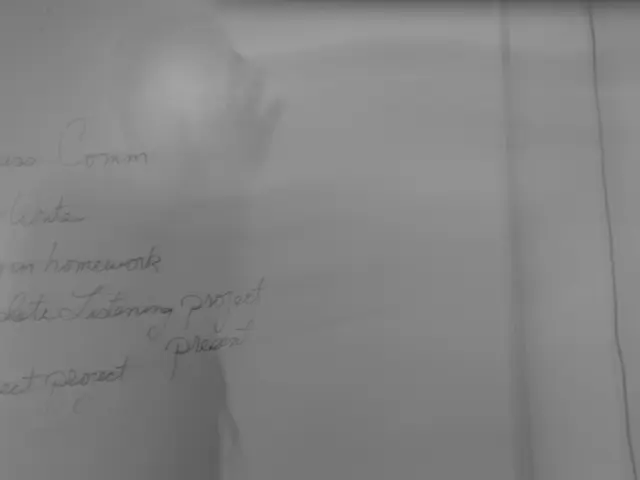Modern Times Ahead: EU Partners Anticipate a Dynamic New German Government
Partners within the EU hold significant expectations towards the recently formed German government
In an upbeat setting at an informal gathering of EU foreign ministers in Warsaw, Germany's European compatriots have expressed excitement about the arrival of its new federal government. "We eagerly await cooperation with the new German administration," said UK Foreign Secretary David Lammy during the sidelines of the meet-up.
The Finnish Foreign Minister, Elina Valtonen, mentioned the presence of "great expectations" for the new federal Italian government. Valtonen stated her delight at Germany now having a functioning government once again. In light of the ongoing Ukrainian conflict and the pursuit of a common European defense, the EU must intensify its efforts, she added.
Likewise, the Czech Foreign Minister, Jan Marian, indicated his government's anticipation of working together with the new German government. He believed the new government, under Merz's leadership, would offer more support for Ukraine while taking a tougher stance against Russia.
Austrian Foreign Minister Beate Meinl-Reisinger was optimistic about her meeting with her counterpart, new German Foreign Minister, Johann Wadephul (CDU) in Warsaw. She emphasized the need for a German federal chancellor with a distinct European vision.
Speaking about Merz's defeat in the initial round, Finnish Foreign Minister Valtonen preferred to look forward. Lammy downplayed the situation, labeling it a "minor hiccup" that wouldn't require excessive concern.
Over the course of two days at the so-called Gymnich format, EU foreign ministers will discuss opportunities to deepen their ties with Britain, address the Russian invasion of Ukraine, and manage relations with the US. British Foreign Secretary Lammy participated in Wednesday's discussions, and Germany will be present at the meeting for the first time, with Foreign Minister Wadephul taking up the mantle.
Insights: This new German government faces expectations revolving around several focal points: the ongoing war in Ukraine, common European defense, and dealings with both the US and Britain. For Ukraine, the EU looks to Germany for decisive action, striking a delicate balance between aid and managing complex relations with Russia.
Moreover, the enlarged German defense budget, following the passage of an €1 trillion package, has potential for boosting EU defense capabilities, necessitating Germany to lead in the development of a more cohesive European defense policy.
With respect to the US and Britain, the German government must strike an effective balance between Euro-American cooperation and the nuanced internal dynamics within the EU. For the EU-UK relationship, the new administrators will need to navigate post-Brexit economic and political ties, preserving broader European stability and unity.
The revival of the Franco-German alliance, with Chancellor Merz and President Macron, looms large for European leadership. Both leaders are expected to collaborate on advancing European integration and security, bridging differences on contentious issues like the Mercosur Agreement and nuclear energy. Securing Poland's alliance, alongside other key countries, will be crucial for the advancement of the EU and its global influence.
Amidst these grand challenges, the new German government must grapple with economic and political difficulties. The increasing geopolitical turbulence, including the Ukrainian conflict, poses hurdles for the German economy, while managing extensive spending packages and resulting long-term fiscal challenges is essential. Balancing the varying worldviews of the coalition partners, as unveiled in the CDU/CSU and SPD coalition agreement, while forging ahead on European interests will be an arduous task.
- The upcoming community policy discussions within the EU will likely be influenced by the new German government, as their expectations are high for a more decisive stance on the ongoing Ukrainian conflict and the pursuit of a common European defense.
- German ministers, particularly Foreign Minister Johann Wadephul, will need to address the deepening tensions between Russia and Ukraine, while maintaining a balance in relations with Russia, as per Czech Foreign Minister Jan Marian's anticipation.
- In the realm of policy-and-legislation and politics, the new German government, under Chancellor Merz, will play a pivotal role in navigating the complexities of European policy, such as bridging differences on contentious issues like the Mercosur Agreement and nuclear energy.
- In the context of employment policy, the German foreign minister will work closely with his counterparts, like British Foreign Secretary David Lammy, to manage relations with the US and address war-and-conflicts, as was evident in the Gymnich format meetings.
- Amidst the general-news of global geopolitical turbulence and economic challenges, the new German government, consisting of coalition partners CDU/CSU and SPD, will face an arduous task in forging ahead on European interests while balancing the varying worldviews within the coalition.







